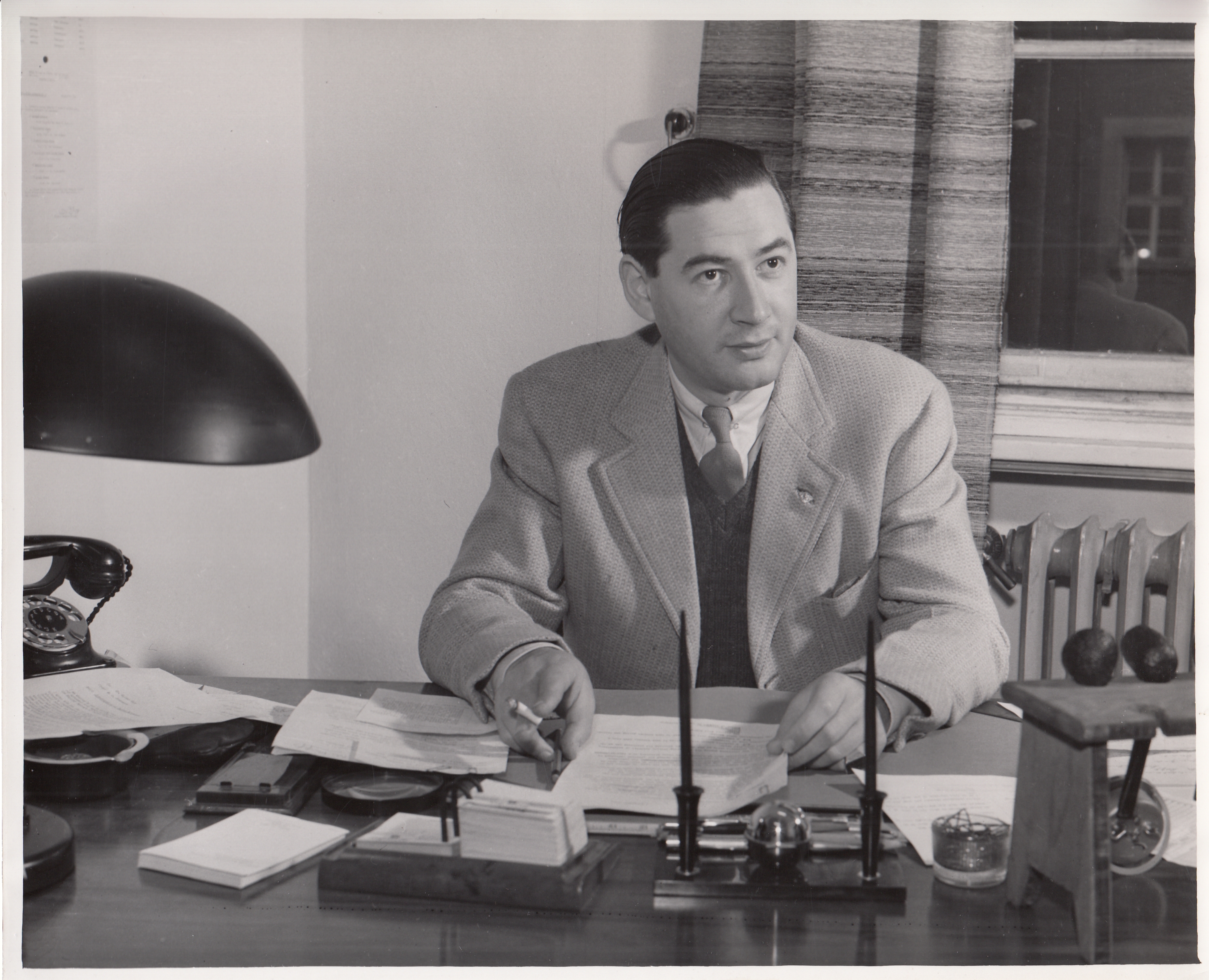AFFIDAVIT OF PETER JOSEPH HEISIG, OBERLEUTNANT ZUR SEE
27.11.45
The news that German U-Boat officers are accused of murdering shipwrecked allied seamen makes me feel it my duty to give the following testimony.
In September 1942 I was sent as a midshipman to attend a course for U-Boat Officers of the Watch (UWO Lehrgang) at the 2nd U-Boat Training Division (2te ULD) at Gotenhafen-Oxhoelt.
At the end of September—or it might have been at the beginning of October—Grand Admiral Doenitz, who was then still C-in-C U-Boats carried out an inspection (data for the exact date of this inspection are in a diary at my parents' and are not available to me at the moment). During the period between 10
72
D-566
and 11.45 o'clock Grand Admiral Doenitz spoke about the military situation in the Theatre Hall of the 2nd ULD.
The gist of this talk of Admiral Doenitz's about the position, during which I heard his words clearly and distinctly, was as follows: U-boat successes have diminished at the moment. The reason for this is the energetic use of air patrols by the enemy. One cannot however expect the old successes to be achieved again in a few months as a result of the development of new anti-aircraft weapons. Hitler personally assured him, Doenitz, that U-boats would be given priority in the allocation of the new antiaircraft weapons.
To a question by an officer with reference to an article in the "Deutsche Allgemeine Zeitung" about ship-building in the USA, Admiral Doenitz replied:
"According to news received from America we were bound to reckon with the possibility that in the Allied countries more than 1,000,000 net registered tons of new merchant shipping space would be brought into service monthly. This was more shipping space than would be sunk even with good U-boat successes. The bottleneck of the Allies lay only in the problem of personnel for these newly built ships. The Atlantic route was too dangerous for seamen so that they even had to be brought aboard ship under compulsion. This was the point where we, the U-boat crews, had to take a hand. He therefore demanded that we should from now on carry on total warfare against ship and crew. That meant: so far as possible, no seaman from a sunk ship was to get home any more. Only thus could the supply line of the British Isles be seriously endangered and only thus in the long run could we strike a noticeable blow at Allied merchant shipping traffic. In this way it would be impossible for the opponent even to make use of his newly built ships, since no more crews would be available to him. After the sinking of a ship, every possibility of rescue must be denied to the crew, through the destruction of every means of saving life.
I later discussed these remarks of Admiral Doenitz's with the others, and all present unanimously and unambiguously took them to mean that after the sinking of a ship, all possibility of escape, whether in boats, on rafts or by any other means, must be denied to the crew and the destruction of the crew was to be attempted by every means. This mode of warfare was for me as for most of my comrades completely new. Owing to Admiral Doenitz's authoritative position, it was nevertheless fully and completely accepted by many of them. He sought to invalidate
73
D-566
in advance any doubts which might arise, by pointing to the air war and the bombing.
I still remember details of this address; it is, however, not possible for me to cite them all in this statement.
Certificate and affidavit, on Doenitz's talk to U-boat officers about the Atlantic war in 1942, including the policy for U-boats to prevent the survival of shipwrecked enemy crew members
Authors
Walter H. Rapp (interrogator, prosecutor, NMT)
Walter H. Rapp
Chief of the Evidence Division of the Office Chief of Counsel, Nuremberg Trials

- Occupation: interviewer; lawyer; prosecutor (period: 1946-01-01 through 1948-01-01)
- Participant in: Nuremberg trials (role: prosecution)
- Significant person: Rudolf Kastner (role: acquaintance); Telford Taylor (role: superior)
- Military rank: lieutenant colonel
- Residence: New York City (date: 1956-01-01)
Peter-Josef Heisig (U-boat officer (1942))
Peter-Josef Heisig

- Additional details not yet available.
Date: 27 November 1945
Literal Title: [second page:] Statement
Defendant: Karl Doenitz
Total Pages: 2
Language of Text: English
Source of Text: Nazi conspiracy and aggression (Office of United States Chief of Counsel for Prosecution of Axis Criminality. Washington, D.C. : U.S. Government Printing Office, 1946.)
Evidence Code: D-566
Citation: IMT (page 2669)
HLSL Item No.: 452888
Notes:Rapp certified Heisig's affidavit.